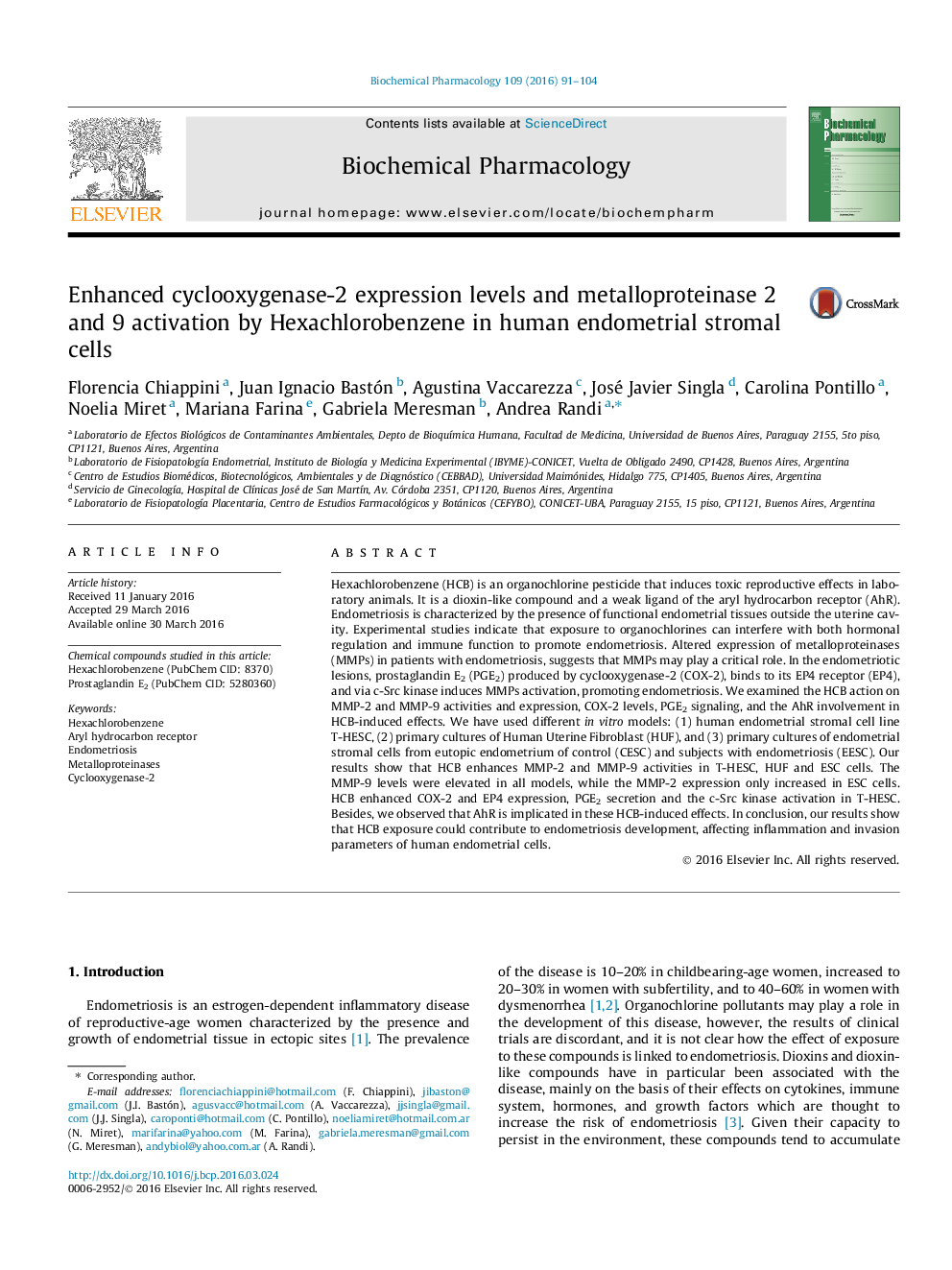| کد مقاله | کد نشریه | سال انتشار | مقاله انگلیسی | نسخه تمام متن |
|---|---|---|---|---|
| 2511781 | 1557903 | 2016 | 14 صفحه PDF | دانلود رایگان |
Hexachlorobenzene (HCB) is an organochlorine pesticide that induces toxic reproductive effects in laboratory animals. It is a dioxin-like compound and a weak ligand of the aryl hydrocarbon receptor (AhR). Endometriosis is characterized by the presence of functional endometrial tissues outside the uterine cavity. Experimental studies indicate that exposure to organochlorines can interfere with both hormonal regulation and immune function to promote endometriosis. Altered expression of metalloproteinases (MMPs) in patients with endometriosis, suggests that MMPs may play a critical role. In the endometriotic lesions, prostaglandin E2 (PGE2) produced by cyclooxygenase-2 (COX-2), binds to its EP4 receptor (EP4), and via c-Src kinase induces MMPs activation, promoting endometriosis. We examined the HCB action on MMP-2 and MMP-9 activities and expression, COX-2 levels, PGE2 signaling, and the AhR involvement in HCB-induced effects. We have used different in vitro models: (1) human endometrial stromal cell line T-HESC, (2) primary cultures of Human Uterine Fibroblast (HUF), and (3) primary cultures of endometrial stromal cells from eutopic endometrium of control (CESC) and subjects with endometriosis (EESC). Our results show that HCB enhances MMP-2 and MMP-9 activities in T-HESC, HUF and ESC cells. The MMP-9 levels were elevated in all models, while the MMP-2 expression only increased in ESC cells. HCB enhanced COX-2 and EP4 expression, PGE2 secretion and the c-Src kinase activation in T-HESC. Besides, we observed that AhR is implicated in these HCB-induced effects. In conclusion, our results show that HCB exposure could contribute to endometriosis development, affecting inflammation and invasion parameters of human endometrial cells.
Figure optionsDownload as PowerPoint slide
Journal: Biochemical Pharmacology - Volume 109, 1 June 2016, Pages 91–104
